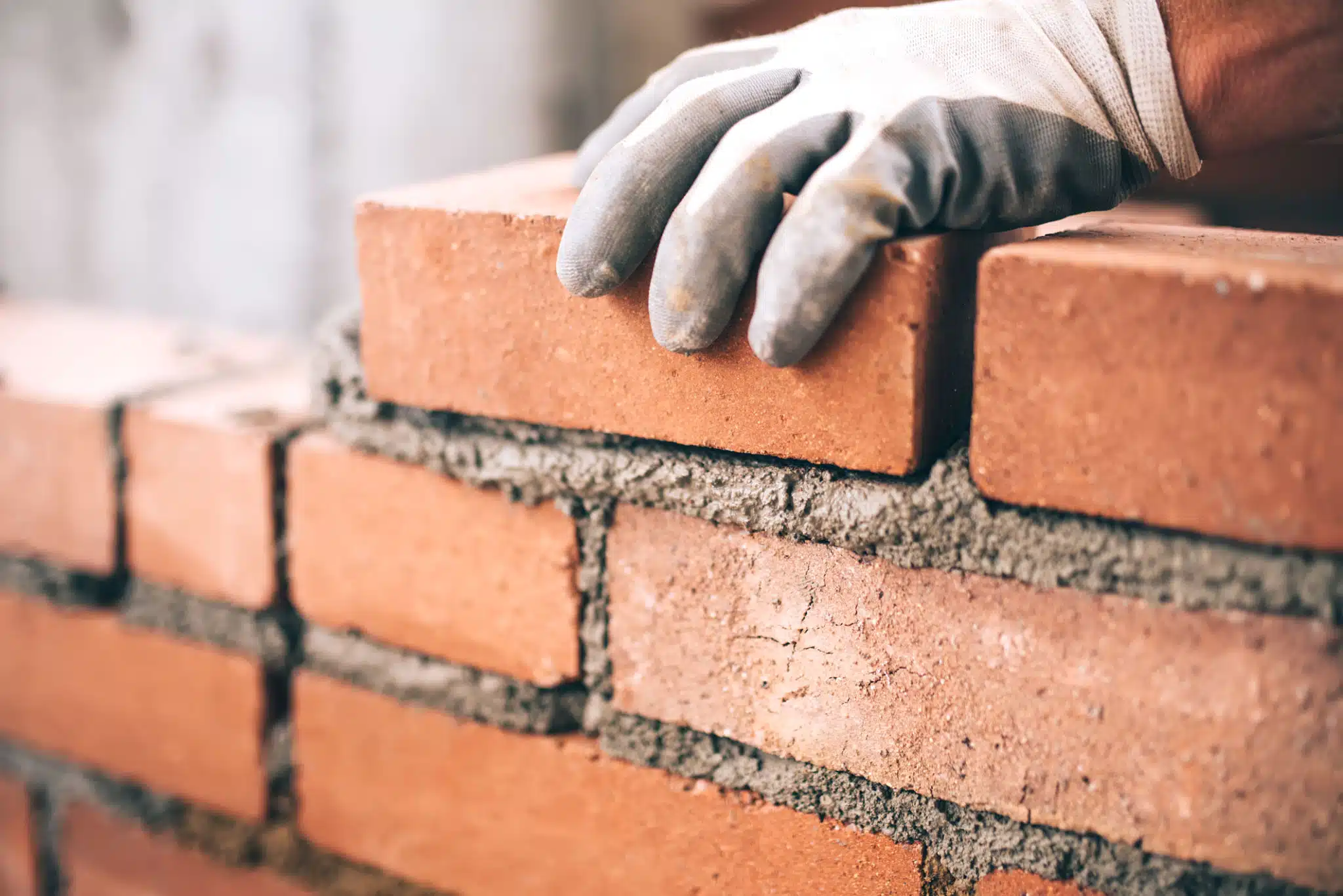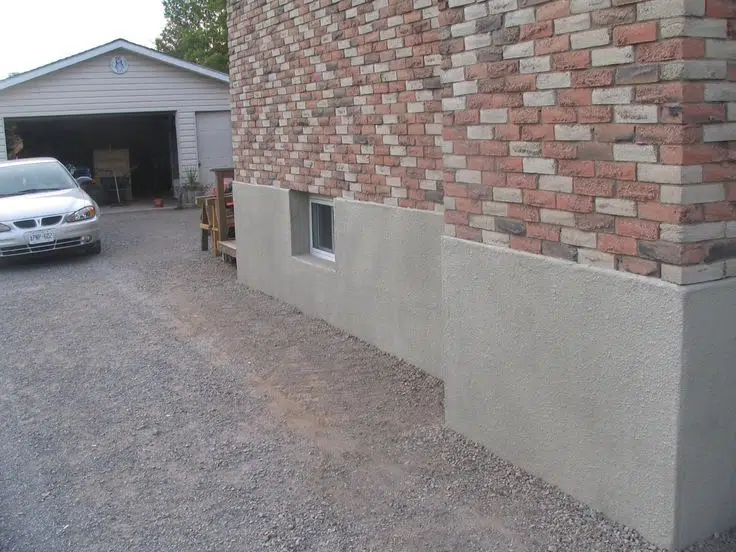As a homeowner, maintaining the structural integrity and appearance of your property is crucial. One often overlooked area that requires attention is the brickwork on your garage. Damaged brick can lead to a host of problems, from cosmetic issues to severe structural concerns. In this comprehensive guide, we’ll explore the causes of brick damage on garages, effective repair solutions, and preventive measures to keep your garage in top condition.
At Fix My Brick, we’ve been serving homeowners throughout southern Ontario for years, specializing in masonry repair and restoration. Our expertise in dealing with the unique challenges posed by Ontario’s climate makes us the go-to professionals for all your brick repair needs.
1. Identifying Damaged Brick on Garages
Before we dive into repairs and prevention, it’s essential to understand how to identify damaged brick on your garage. Here are some common types of brick damage you might encounter:
- Cracks: These can range from hairline fractures to large, visible splits in the brick.
- Spalling: This occurs when the face of the brick flakes off, often due to moisture penetration and freeze-thaw cycles.
- Efflorescence: A white, powdery substance on the brick surface, indicating salt deposits left behind by evaporating water.
It’s crucial to differentiate between structural and cosmetic damage. Structural damage affects the integrity of your garage and requires immediate attention, while cosmetic damage primarily impacts appearance. Here are some signs to help you assess the severity of brick damage:
- Large, diagonal cracks often indicate structural issues.
- Bulging or leaning walls suggest serious structural problems.
- Multiple small cracks or slight spalling may be cosmetic but should be monitored.
- Efflorescence is typically cosmetic but can point to underlying moisture issues.
2. Causes of Brick Damage on Garages
Understanding the root causes of brick damage can help you prevent future issues and make informed decisions about repairs. Here are the primary factors contributing to brick damage on garages:
Weather-related Factors
Ontario’s climate can be particularly harsh on brickwork. The freeze-thaw cycle, where water penetrates the brick, freezes, expands, and then thaws, can cause significant damage over time. High humidity levels and exposure to rain and snow can also lead to moisture-related problems.
Structural Issues
Foundation problems or settling can cause stress on the brickwork, leading to cracks and other forms of damage. This is often seen in older homes or those built on unstable ground.
Impact Damage
Accidental collisions with vehicles or other objects can cause immediate and sometimes severe damage to garage brickwork.
Poor Construction or Maintenance
Improper construction techniques, low-quality materials, or neglecting regular maintenance can all contribute to premature brick damage.
3. Repairing Damaged Brick on Garages
When it comes to repairing damaged brick on your garage, it’s essential to know when you can handle the job yourself and when it’s time to call in the professionals.
DIY vs. Professional Repair
For minor cosmetic issues, such as small cracks or minimal spalling, DIY repairs may be sufficient. However, for any structural damage, large-scale repairs, or if you’re unsure about the extent of the damage, it’s best to consult with a professional masonry contractor like Fix My Brick.
Repair Techniques for Different Types of Damage
- Filling cracks and holes: Small cracks can be filled with masonry caulk or epoxy. For larger holes, a patch can be created using a mixture of brick dust and mortar.
- Replacing individual bricks: Damaged bricks can be carefully removed and replaced with matching new or reclaimed bricks.
- Repointing mortar joints: This involves removing deteriorated mortar and replacing it with fresh mortar to restore the structural integrity of the wall.
Specialized Repairs for Garage Pillars and Corners
Garage pillars and corners often require special attention due to their structural importance. These areas may need reinforcement or complete rebuilding, depending on the extent of the damage.
4. Costs Associated with Brick Repair on Garages
The cost of repairing damaged brick on your garage can vary widely depending on several factors:
- Extent and type of damage
- Size of the affected area
- Accessibility of the damaged section
- Quality of materials used
- Labor costs in your area
On average, minor repairs such as filling cracks or replacing a few bricks can cost anywhere from $200 to $1,000. More extensive repairs, like rebuilding a large section of wall or addressing structural issues, can range from $2,000 to $10,000 or more.
While these costs may seem significant, it’s important to consider the long-term benefits of timely repairs. Addressing brick damage early can prevent more extensive and costly repairs down the line, as well as protect your home’s value and structural integrity.
5. Preventing Future Brick Damage on Garages
Prevention is always better (and more cost-effective) than cure. Here are some strategies to help prevent future brick damage on your garage:
Regular Maintenance Tips
- Inspect your garage brickwork at least twice a year, especially after severe weather events.
- Clean gutters and downspouts to ensure proper water drainage away from the garage.
- Remove any vegetation growing too close to the brickwork, as roots can cause damage over time.
Waterproofing and Sealing Techniques
Applying a high-quality water repellent sealer to your garage’s brickwork can help protect it from moisture damage. This should be done every 5-10 years, depending on the product used and exposure to the elements.
Structural Reinforcement Options
For garages in areas prone to settling or with a history of structural issues, consider options like:
- Installing helical tie systems to reinforce walls
- Adding steel bracing to support weakened areas
- Improving drainage around the garage foundation
6. When to Consider Garage Rebuilding vs. Repair
In some cases, the damage to your garage’s brickwork may be so extensive that rebuilding becomes a more viable option than repair. Consider rebuilding if:
- The cost of repairs approaches or exceeds 50% of the cost of rebuilding
- There are significant structural issues that can’t be adequately addressed through repairs
- The garage is very old and has multiple ongoing issues
- You’re planning to expand or significantly modify the garage anyway
Always consult with a professional masonry contractor to get an expert assessment and cost comparison between repair and rebuilding options.
7. Choosing a Masonry Professional for Garage Brick Repair
When selecting a masonry contractor for your garage brick repair, look for the following qualities:
- Extensive experience in brick repair, especially for garages
- Proper licensing and insurance
- Positive reviews and references from past clients
- Clear communication and willingness to explain the repair process
- Detailed written estimates and contracts
Don’t hesitate to ask potential contractors questions about their experience, methods, and materials they plan to use. A reputable professional will be happy to address your concerns and provide you with the information you need to make an informed decision.
Conclusion
Addressing damaged brick on your garage is crucial for maintaining both the appearance and structural integrity of your home. By understanding the causes of brick damage, recognizing when professional help is needed, and implementing preventive measures, you can ensure your garage remains in excellent condition for years to come.
At Fix My Brick, we’re committed to providing top-quality masonry repair services throughout southern Ontario. Our team of experienced professionals is ready to assess your garage’s brick damage, provide expert solutions, and help you protect your investment. Don’t let brick damage compromise your garage’s safety and appearance – contact Fix My Brick today for a comprehensive evaluation and personalized repair plan.
\n\n\nWhat common types of brick damage can occur on garages?
Common types of brick damage include cracks, spalling (flaking of the brick face), and efflorescence (white powdery deposits from evaporating water).
What are the primary causes of brick damage on garages?
The primary causes of brick damage include weather-related factors, structural issues, impact damage, and poor construction or maintenance.
When should I consider professional help for brick repair?
Professional help is recommended for structural damage, large-scale repairs, or if you’re unsure about the extent of the damage. Minor cosmetic issues may be suitable for DIY repairs.
What are some techniques for repairing damaged brick?
Repair techniques include filling cracks and holes with masonry caulk, replacing damaged bricks, and repointing mortar joints to restore structural integrity.
What costs should I expect for brick repair on my garage?
The cost of repairs can range from $200 to $1,000 for minor issues, while extensive repairs can range from $2,000 to $10,000 or more, depending on the damage and necessary labor.
How can I prevent future brick damage on my garage?
Preventive measures include regular inspections, cleaning gutters, removing nearby vegetation, applying waterproof sealers, and considering structural reinforcements.
When might it be more sensible to rebuild a garage rather than repair it?
Rebuilding may be more sensible if repair costs approach or exceed 50% of rebuilding costs, if there are significant unaddressable structural issues, or if you’re planning significant modifications to the garage.
What qualities should I look for in a masonry professional for brick repair?
Look for masonry professionals with extensive experience in brick repair, proper licensing and insurance, positive reviews, clear communication, and detailed written estimates.



